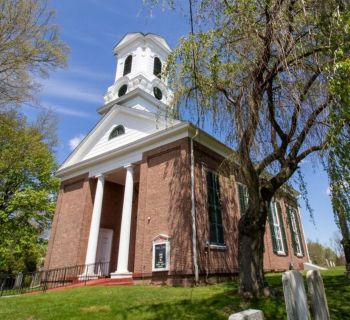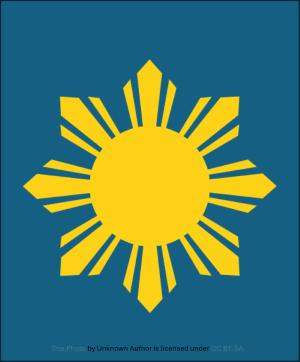Church of Sol
"We are his arms and feet, his hands and his smile. As a mirror, we who remember his name and honor his sacrifice go forth to our kin and grant them solace and succor in their times of need. Go, and do as He wills." -
Across Eryia , no single group or organization has had such a lasting impact as the Church of Sol, or more properly- the two main denominations who claim Sol as their diety - the Union of Sol and the Convocation of Sol. The history of the mythology of Sol and the religious organizations that rose due to them is vast and intertwined with society itself. In fact, in Eryian societies worship of Sol is considered to be one of the three defining characteristics of civilization itself (writing system, the rule of law, and the presence of Solian influence).
The Mythology of Sol
While there are dozens of variations on specifics and timeframes when dealing with the mythology of Sol, depending on origin location and the medium used to record the stories all have several components that remain consistent. The mythos is primarily narrative in nature, focusing on a singular entity “Sol”. Sol’s nature is highly contested, some believing him to be a Man, others hold him as a God, and still others as a Spirit or some other classification of non-human being. Universally Sol is presented as benevolent, though his other characteristics are more debated. Even the denotation of Sol as ‘he’ is questionable, given his unknown race/being, though over 80% of the recorded instances refer to Sol as masculine, 14% as androgynous or without gender, and only 6% as feminine.
Unsurprisingly, each culture seems to draw parallels between Sol's personality and the characteristics that culture values and urges their population to emulate. Notably, the Cheald branch of Solian mythos describes him as ‘curious’, ‘innocent’, and ‘diffident’, with such presentation at extreme odds with the more mainstream Norkin branch, where he was the embodiment of wisdom, logic, and precision. In all cases, though for different reasons and after various interactions with secondary characters, Sol sacrifices himself to create some form of environment for Humanity. Interpretations differ but the most common terms are “World”, “Space”, and “Home”, though more exotic terms such as “Universe”, “Existence”, and “Canvas” have all been used, depending on the sect. These two topics were the genesis of the first major doctrinal split, with the Liivi asserting that Sol remains in some facet alive or influential, and the Dauu believing that his sacrifice has rendered him wholly expended and gone, or at least comatose to the degree that he cannot interfere in worldly matters
Origins

The origin of the belief in Sol as an all powerful deity and the arbiter of the highest good are quite ancient and widespread geographically, with pictorial evidence and oral traditions universally rooted in ancient gatherings of humans, with the strange exception of the Burr Flakka . They may have some exposure to Solian mythology, but due to their isolationist nature, scholars have been unable to verify how deeply teachings related to Sol have situated themselves within the desert nomad’s culture. Each culture regardless of the degree of piousness, seems to have adopted Sol as a form of moral example. All cultures express at least some degree of appreciation or owe some debt to Sol, and as humans are wont, a number of rituals have arisen to honor, repay, or soothe Sol- typically either by emulating his behavior/virtues, or by making sacrifices directly to Sol or on his behalf to those in need.
The Union of Sol and The Convocation of Sol
When the Eryian government declared the entire world to be explored and known, it became widespread knowledge that all human cultures had an instantiation of the Church of Sol, but with many variations in his worship and the specifics of his life, deeds, and state. Thus, a meeting of religious leaders across the continent was called to more deeply explore and codify the beliefs of “Solian Faith”. The meeting was held in Ifjel (then named Bliora), and this meeting became the birthplace of the two major branches of the Solian faith, the Union of Sol and the Convocation of Sol. The discussions and results of this religious summit were quite messy (as things usually are with deeply held religious debates and matters of differing theology), and two major factions within the church arose and began to organize themselves.
The first was the Union of Sol, which took a ‘majority rules’ type approach to its theology. Believing that Sol’s truth had been equally distributed and warped by time across all peoples who worshipped Sol, they developed a framework of theology from the most popular and repeated beliefs from those assembled representatives of each individual form of Solian faith. This was by far the largest faction, as most of the differentiation in story and worship was surface-level at best. The leaders of this faction saw that a unified Church of Sol would be a very useful and powerful political tool, and could easily reconcile believers to a structure in which they had a voice and could be in the majority, rather than be a minority.
However, there were a number of individuals who believed that their individual, localized beliefs had been recorded properly, and that they had the Truth as Sol intended for humans. These more argumentative and headstrong factions all agreed in the infallacy of their own doctrine, though not on much else. Out of necessity to survive, however, they compromised to join together in spite of diverse theological positions unified under the title the “Convocation of Sol” and acknowledged each other as having “Sol’s Truth” as intended for “Their People”.
These two factions have been contesting each other throughout Eryian history, and a speaker's allegiance between these two churches and the person's position within their respective organization is the first point of note when beginning theological discussions.
Current Day
Today, the Union of Sol has lost much of its political power and social/cultural impact across the world. The Union of Sol was prominent in Eryian central political and governmental structures prior to the Jordbani, and with the perception that the Union of Sol was culpable in the cover-up of the severity of problem posed by Magichem Poisoning, and the failure of the Stela Ond solution. The organization lost the trust of the adherent base, and has been on a downhill spiral since then. At this point, only a single branch within the Union of Sol has a positive reputation, the Uskyp, who maintain authority over Port Egris and perform the Rites of Sending every decade.
The Convocation of Sol weathered the social upheaval of the Great Poisoning well, as its greater focus on caretaking of their local peoples positioned them to inherit influence and power as the central governing bodies collapsed in the wake of the Jordbani. The church not only retained their adherents, but gathered new members as the church was able to provide stability and governance in unstable times. Certain parishes within the Convocation of Sol have amassed enough support, structure, and influence to establish independent theocratic states amongst the warlords and gangs fighting for control of resource-rich areas.

Community Care in the Convocation of Sol
Local chapters of the Convocation of Sol are highly socially minded, and proactively reach out to those in need. The church focuses on what they call the three cares - care of body, care of mind and care of sol. The Convocation aggressively teaches that Sol requires care for others, and exemplifies the need to be willing to sacrifice ones selfish desires to provide that care.
Each local chapter is focused on meeting the three cares for their local community in a tangible way. The reach of a local chapter is considered to extend in a 20 mile radius from the site of the local parish hall. The Convocation has a system of deacons who administer care in the community, and these "servant leaders" are some of the most powerful (and busy) people in the church.
Care of Body
All Convocation chapters have food banks and soup kitchens which are run by parishioners. The church members donate time and money to these facilities to ensure that local residents have enough to eat. In small or poor communities, these facilities are co-located with the parish hall, while for larger communities separate facilities are more typical.
The parish will also typically have some resource to provide temporary housing such as a community shelter, and a medical clinic where people with needs can come seek care, paying only whatever donations one can afford. Other community support activities that are typical for wealthier chapters include Magichem Poisoning treatment centers, battered women's shelters, drug rehabilitation centers, and hospitals.
Post-Jordbani with the fall of the central Eryian government, the church has expanded the definition of Care for the Body to include establishment of the rule of law functions of government including courts, public safety, and police, fire and emergency assistance. These functions can be professionally provided and paid for by the church, or be staffed with volunteers depending on the wealth and needs of the community. If the community has a repeated problem with warlords or gang violence, the Convocation will establish a para-military organization to protect a community from raiding.
Care of Mind
Convocation chapters post-Jordbani typically have local basic schools which focus on literacy, mathematics, religious studies and life skills, and the central church structure sponsors,administers and pays for universities and the education of students from Convocation schools for those who excel at lower levels or who wish to participate at the professional level in the Community Care ministry. The Covocation seeks out and stores knowledge and artifacts of the ancients in massive libraries located in each major metropolitan cities and in most regional centers. In addition, the Convocation promotes and supports local trades educations and apprenticeships.
All professional Convocation church staff, including local pastors, are trained in mental health of counseling to assure that church members and at risk populations in the community have support for serious mental health problems including grief counseling and stress management.
Care of Sol
The Convocation of Sol is a religious organization, and speaks to the souls of both members and non-members. The church takes it's duty to hold fast to a standard of moral good, and to encourage the exploration of divine text as a means of renewing one's life, practicing gratitude, acquiring wisdom and staying attuned to good spiritual influences. The church encourages examining one's own life and the pursuit of meaning through service. The example of Sol in seeking the highest possible good for the community is a primary teaching point.



Comments